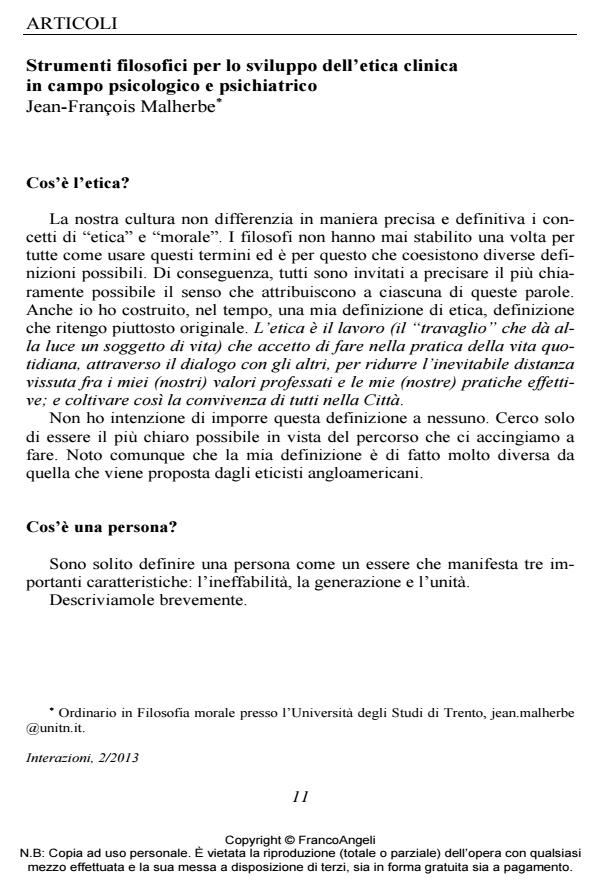Philosophical instruments for the development of clinical ethics in psychological and psychiatric
Journal title INTERAZIONI
Author/s Jean-François Malherbe
Publishing Year 2014 Issue 2013/2
Language Italian Pages 19 P. 11-29 File size 743 KB
DOI 10.3280/INT2013-002002
DOI is like a bar code for intellectual property: to have more infomation
click here
Below, you can see the article first page
If you want to buy this article in PDF format, you can do it, following the instructions to buy download credits

FrancoAngeli is member of Publishers International Linking Association, Inc (PILA), a not-for-profit association which run the CrossRef service enabling links to and from online scholarly content.
This article is an attempt to show the role which is assumed by ethics when it is conceived as a work, or a thought that nourish itself in its field of application, which is in this case the field of psychology and psychiatry. After having described some of the major characteristics of the human being as a single and relational being, we will show the dynamics of violence. Not all of them are necessarily morally unacceptable, because some of them are favorable, even required for the development of human life. From an ethic point of view violence is acceptable when it encourages the inclusion of the third, that is usually excluded. The included third is the best method of ethics because it accepts the dynamic of the conflict instead of denying or hiding it behind false dualisms. Included third is also the fundamental premise of transdisciplinarity, namely the creative meeting of different disciplinary universes that cross themselves in a subject who always holds a dialogue with the same subject. The article ends with the analysis of a therapeutic practice, whose protagonists are the ethicist, the psychiatrist and their patient.
Keywords: Ineffability, mutual autonomy, violence (symbolical/diabolical), word, third, transdisciplinarity
Jean-François Malherbe, Strumenti filosofici per lo sviluppo dell’etica clinica in campo psicologico e psichiatrico in "INTERAZIONI" 2/2013, pp 11-29, DOI: 10.3280/INT2013-002002